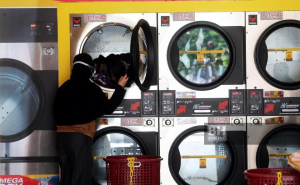
By Dr Lee Wei Hum- Vaping has recently risen to the forefront of national concern in Malaysia and worldwide. As the prevalence of vaping increases so does the heightened concern about its impact on health and wellbeing. Along this emerging trend, one salient finding from the National Health and Morbidity Survey is a dramatic shift in the smoking behaviour of the young generation with a significant increase in vaping among those aged 13 to 17 years old, rising from 9.8% in 2017 to 14.9% in 2022 while cigarette smoking decreased for boys but not for girls. Girls’ smoking has recorded an increase more than double from 2.6% in 2016 Tobacco and E-cigarette Survey Among Malaysian Adolescents (TECMA) 2016 to 5.3% with an increase of 2.7% in 2017 from the Adolescent Health Survey.
Tobacco companies have been targeting the young generation as they attempt to normalise tobacco use and promote vaping to continue to be in the lucrative business. The industry has been studying the attitudes, lifestyles, values, aspirations, and social patterns of the young generation with a view towards making vaping, and by extension smoking, a socially acceptable youth activity. So, to sustain their business, they need to promote their products, especially vaping.
Many of the young generation vape because they want to try something new, attracted to the taste and smells of the flavours in vaping liquids and the misbelief that vaping is safer than conventional cigarettes. Studies have shown they will continue to vape or smoke and will only consider quitting when they face health problems. They also have low motivation to quit vaping as they think they will not get addicted.
Another concern is that vaping among the youth is associated with cigarette smoking, alcohol use and drug use, indicating that vaping may be a gateway to using other substances. Studies have also highlighted that role of family such as poor parental monitoring and parental divorce were associated with vaping behaviour, while having good parental connectedness was protective against vaping among the young.
The Ministry of Health has taken various initiatives to denormalise vaping and smoking and one of its major efforts is to work towards achieving the Generational End Game (GEG) through legislation to control the use, possession and sale of cigarettes and vape products. The GEG has the vision to build a tobacco-free generation in Malaysia. Its realisation will reduce the number of vapers and smokers, curb addiction and save lives and improve the wellbeing of our future generations.
We need food, not tobacco
It is all our collective responsibility to play a part in combating the tobacco epidemic, the preventable death and disease it causes and to encourage quitting of smoking and vaping. As part of Taylor’s University’s commitment to equipping youth with the knowledge to combat this public health concern, it held a World No Tobacco Day (WNTD) event, in line with this year’s theme set by WHO: Grow food, not tobacco.
The growing food crisis is driven by conflicts and wars, climatic shocks, and the economic and social impacts of the COVID-19 pandemic. Structural causes like the choice of crop also have an impact, and tobacco growing has been found to contribute to increased food insecurity. There is a need to take measures to reduce tobacco growing and help farmers to move into the production of alternative food crops, supporting the creation of alternative livelihoods. Nine of the 10 largest tobacco cultivators worldwide are low and middle-income countries, and four of these are defined as low-income food-deficit countries. Land used to grow tobacco could be more efficiently used to achieve United Nations Sustainable Development Goals: SDG 1 to end poverty in all its forms everywhere, SDG 2 towards zero hunger and SDG 3 to ensure healthy lives and promote wellbeing for all at all ages.
In the context of our country, tobacco farming is not very significant, contributing less than 10% to the total revenue generated by our agricultural sector. The government has raised awareness in our tobacco farming communities about the benefits of moving away from tobacco and growing food crops. Kenaf (hibiscus cannabinus) is the focus of the government as an alternative for tobacco growers and aims to make the crop the third most important contributor to the national economy after rubber and palm oil. The government has also invested in research and development of the industry, from crop to final product. As one of the signatory countries to the WHO Framework Convention on Tobacco Control, our government is committed to reduce tobacco use and prevalence of smoking.
Professor Dr Wee Lei Hum is a Professor in Public Health at the School of Medicine, Faculty of Health and Medical Sciences, Taylor’s University. She is an expert in health behaviour with special interest in smoking cessation.
Source: Business Today










